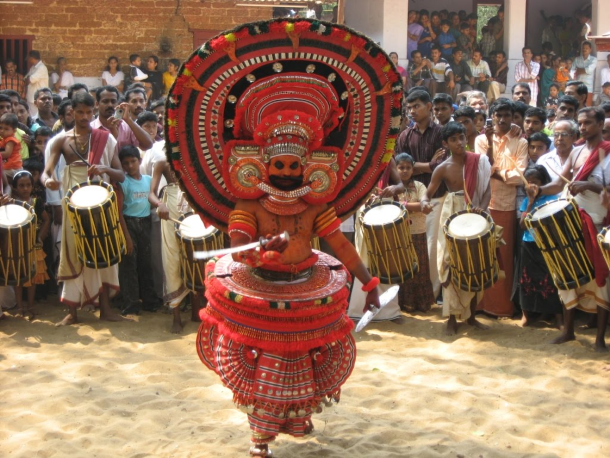
Image Courtesy: Pinterest
Kailpodhu, celebrated on 3 September, signifies the completion of “nati“, or the transplantation of the rice crop. Officially, the festival begins 18 days after the sun enters the Simha Raasi (the western sign of Leo).
The festival signifies the day when men should prepare to guard their crop from wild boars and other animals, since during the preceding months, during which the family were engaged in the fields, all weapons were normally deposited in the Kanni Kombare, or the prayer room.
Hence on the day of Kailpoldu, the weapons are taken out of the Poojaroom, cleaned and decorated with flowers. They are then kept in the Nellakki Nadubadec, the central hall of the house and the place of community worship.
Each member of the family has a bath, after which they worship the weapons before feasting and drinking. The eldest member of the family hands a gun to the senior member of the family, signifying the commencement of the festivities.
The whole family assembles in the mand (open ground), where physical contests and sports, including marksmanship, are conducted. In the past the hunting and cooking of wild game was part of the celebration, but today shooting skills are tested by firing at a coconut tied onto the branch of a tall tree.
Traditional rural sports, like grabbing a coconut from the hands of a group of 8–10 people (thenge porata), throwing a stone the size of a cricket ball at a coconut from a distance of 10–15 paces (tenge eed), lifting a stone ball of 30–40 cm lying at one’s feet and throwing it backwards over the shoulders, are now conducted in community groups called Gowda Samajas and Kodava Samajas in towns and cities.